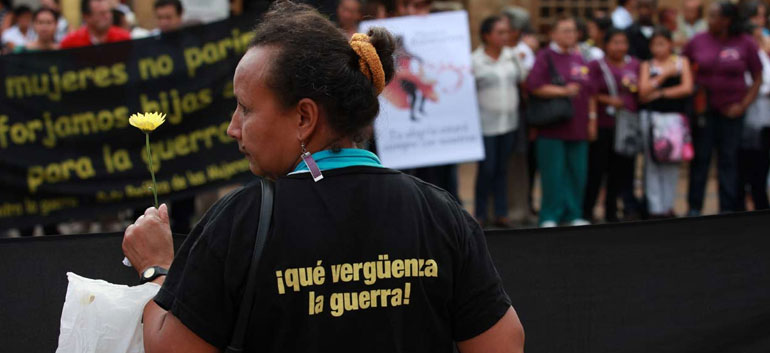Some 366 attacks were registered during a tumultuous year for social protest, including 78 murders, 209 death threats, 39 direct assaults and a number of unlawful detentions and information theft.
The homicide statistics, in particular, represent a 12% increase from the previous year.
According to the report, a key factor in the heightened violence was the “police brutality and the stigmatization of protest leaders” that followed the massive countrywide demonstrations that gripped much of the country over the course of the summer and fall.
MORE: Human rights defenders need defending
“The sectors with the highest murder rate are the indigenous fighting against the exploitation of natural resources followed by community leaders and then agricultural farmers,” reads the report.
We Are Defenders (“Somos Defensores”), the NGO that authored the report, estimates that between strikes in the coffee, mining, trucking, education, energy, health and agricultural sectors, as well as large-scale protests from indigenous communities, some 50% of the country saw its streets and highways disrupted due to protest activity over a 148-day period.
This new surge in social unrest also explains the broader distribution of violence across the country than in previous years. “These ‘new’ states with high levels of aggression against social leaders coincide, in many cases and dates, with the marches and agrarian protests,” reads the report.
According to the System of Information about Aggression against Human Rights Defenders (SIADDHH), 50% of the attacks are believed to have been carried out by paramilitary groups, with state security forces implicated in 14%.
Impunity and a lack of protective measures on the part of the state, says the report, are potentially more problematic than direct violence.
Only 7.4% of the 7, 487 people in Colombia currently living with government sanctioned body guards are human rights defenders. Some
MORE: 32 human rights defenders murdered in 2009
Carlos Guevara, leader of the We are Defenders (“Somos Defensores”) NGO, told the EFE newswire that “the paradox” of the government’s aggression toward and neglect of human rights workers “is that it is exactly these social leaders who are the ones who will sustain any potential agreements in Havana between the government and the FARC,” the country’s oldest rebel group.
Therefore “if the government does not support them, the peace talks are going to suffer.”
Sources
- Asesinatos de defensores de derechos humanos en Colombia suben a 78 en 2013 (CM&)
- Asesinatos de defensores de DDHH en Colombia suben a 78 en 2013 (La Verdad)
- Casi 7.500 amenazados viven en Colombia rodeados de escoltas armados (CM&)
- INFORME SIADDHH 2013: D DE DEFENSA (Somos Defensores)
- Asesinatos de defensores de derechos humanos en Colombia suben a 78 en 2013 (W Radio)


